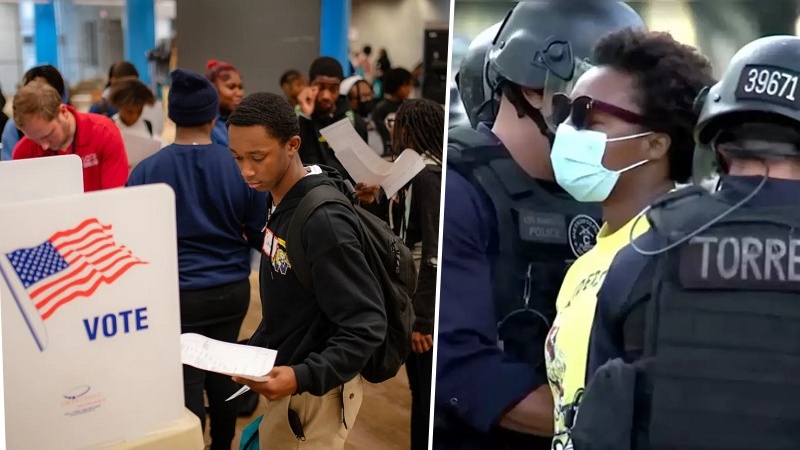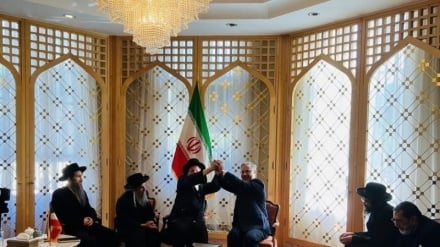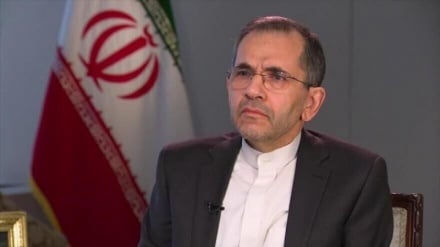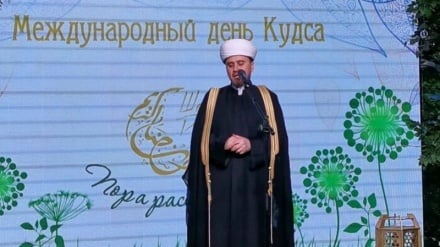American students' reaction to election game; Real change is on streets not in ballot boxes
-

American students' reaction to election game; Real change is on streets not in ballot boxes
Pars Today - The disregard for people's demands in the United States, especially among university students, shows how the country's political system has become a predetermined process without hope for real change for many students.
In American universities, with the start of the election season, a space has been created that, as Howard Zinn puts it, is called "election madness." This madness is not separate from university culture, and we see the holding of events such as election debates, the activities of Republican and Democratic groups, and the encouragement of students to participate in elections. According to Pars Today, in this context, voting has been taught to students as the pinnacle of political participation, a sacred duty that has been put in their minds since school. However, today this process is facing a serious crisis that challenges the electoral system and students' trust in this process.
Protesting students, who were previously familiar with the electoral system, are now facing serious doubts. Past events and the suppression of anti-war and anti-genocide protests in Palestine have dealt a heavy blow to their beliefs. Many of these protests were met with severe police intervention and widespread suppression.
Students who were at the forefront of these protests witnessed the expulsion, censorship, or punishment of professors who stood alongside them. Such an atmosphere, especially in universities, has led students to doubt the political and intellectual impact of the academic system.
This crisis is also evident in the American electoral atmosphere. Students, observing the small gap between the main American parties' positions on genocide and war, feel that there is no fundamental difference between the electoral options. At one of Kamala Harris's election rallies in August, protesters chanted slogans such as "Kamala, we accuse you of genocide." Harris's response was: "If you want Trump to win, continue saying these things."
This reaction shows the depth of the crisis and the distance between students' demands and politicians. Meanwhile, Donald Trump has announced that he will provide all necessary tools to support Benjamin Netanyahu in "finishing the job he started."
The main demand of protesters in American universities is an end to military support for Israel. However, this demand is beyond the limits of what is possible for the country's political elite, and it has no place even in the electoral atmosphere. This disregard for people's demands, especially among university students, shows how the American political system has become a predetermined process without hope for real change for many students.
Nazia Kazi, an anthropology professor at Stockton University, also refers to this issue in her research on the voting behavior of American Muslims. She says that many American Muslim politicians view elections with despair because both political parties in the country support war-mongering policies and security surveillance. This perspective has become common among many students today, who ask: "How can we participate in an election where both parties represent the face of the American empire?"
Students are now facing a crisis of trust in the ballot box. They believe that this tool, instead of empowering citizens, has become an instrument for controlling and silencing popular protests. According to Kazi, voting has become a very limited and unfair multiple-choice test that no respectable professor would give to their students. They also compare this situation to what Aijaz Ahmad calls the "close embrace of liberalism and right-wing politics."
This crisis has created not only an opportunity for students but also a great challenge for teachers. Kazi emphasizes that this moment can be an opportunity to teach the history of social movements and struggles outside the electoral framework. Students can be shown that real change in history has been achieved not through the ballot box but through organized and collective protests. This moment is an opportunity to break the myths that have been taught to students about voting as the highest form of political participation.
Thus, following the suppression of protests and despair over elections, a great challenge has arisen for the young generation and the American academic system; a generation that has become disappointed about the current system and is seeking new ways for social change.
MG
Key phrases: American crises, Why do American students protest?, Suppression of students in America, American police


